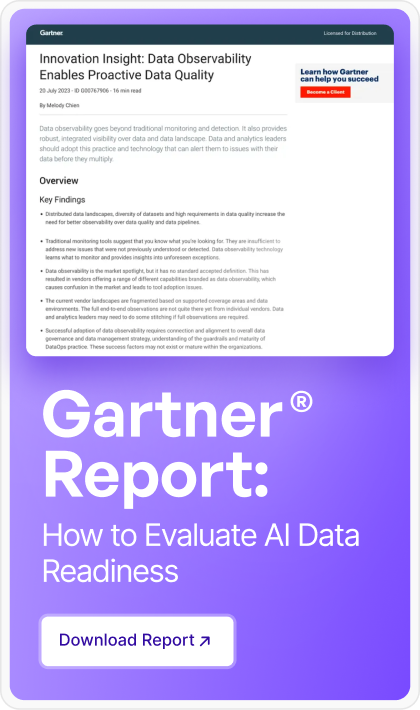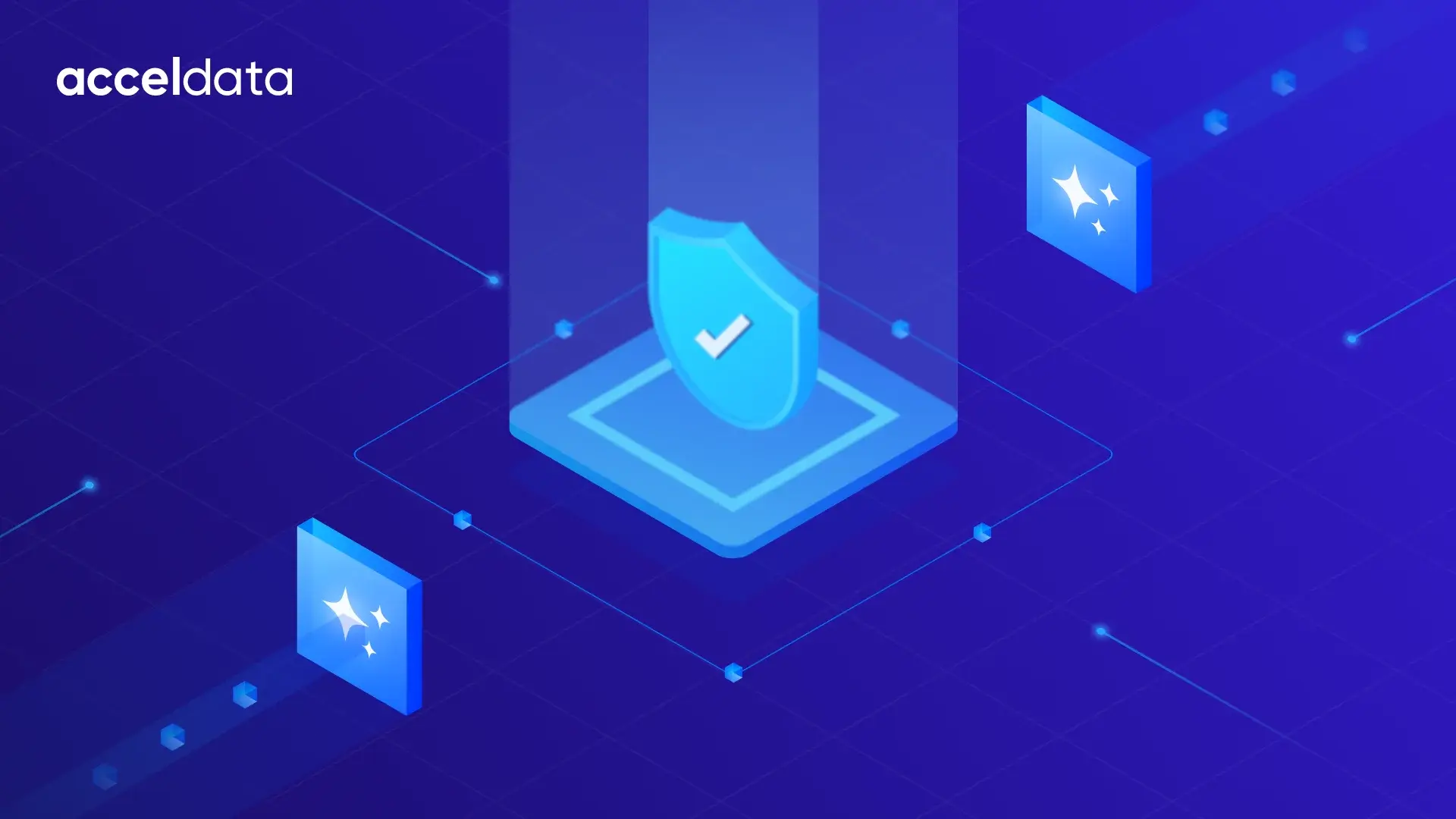The modern data stack is increasingly complex. It's a continuously evolving set of data sources, data pipelines, users, compute activity, and other elements that ideally need to operate in sync. Supporting this type of environment has always been a challenge, but it’s never been harder to build a data team that can manage the modern data stack.
On the one hand, demand for data engineers and other data practitioners is higher than ever, with data engineer job growth expected to be higher than 40% in 2023 as it continues its steady incline to address the changing nature of enterprise data environments. On the other hand, job security for the highest level, the Chief Data Officer (CDO) is just 2.5 years.
The reality is that modern data environments are increasingly complex and as a result, they require various skill sets that help an enterprise optimize their data investment ROI. To do that no longer just means identifying and integrating different data sources. Rather, data teams must ensure data reliability, data quality, effective data pipeline management, cost optimization, and a host of other data-related strategies that ensure data is usable and effective when and where it’s needed.
Finding the right balance of experts and other data practitioners requires knowing what your organization needs, aligning it with current and future needs, and creating a framework for building the ideal team that fits your strategy. Let’s have a closer look at how to build a data team.
How to build a data team
A modern enterprise data team is often composed of a diverse group of individuals with a range of skills and expertise. This will likely include a variety of data engineers, data scientists, database/data warehouse/data lake/lake house administrators, platform engineers and data analysts, as well as other data practitioners.
Data engineers are responsible for building and maintaining the infrastructure and pipelines necessary for ingesting, storing, and processing data. They should have strong programming skills and experience with tools such as SQL, Python, and Apache Beam. This role is critical especially as organizations add more layers of tools and manage their data on a variety of platforms.
Data scientists take on a separate type of role, usually one more on the front-end of data. Their job is to translate the meaning of the data, which means they require accurate data in order to perform well in their jobs. Data scientists apply statistical and machine learning techniques to analyze and understand data. They should have strong math and programming skills, as well as expertise in statistical analysis and machine learning.
Data analysts are responsible for using data to answer business questions and provide insights. They should have strong SQL skills and be proficient in using data visualization tools such as Tableau or Power BI.
Data observability is an important tool for database administrators (DBAs) because it allows them to monitor and understand the data flows within an organization in real-time. By providing visibility into the performance and health of data pipelines, data observability helps DBAs identify and diagnose issues quickly, ensuring that the data is accurate and up-to-date.
By monitoring the data stack in real-time and detecting issues as they arise, platform engineers can use data observability to improve overall reliability of data being used within a modern data environment. Data observability can be especially important in mission-critical environments where downtime is not an option.
These are just some of the key roles needed to build a modern data team. Obviously, this depends on the type of organization, data stack, complexity and business needs. CDOs and other data leaders need to consider the following, however, as they identify how to align their organizational needs with capable individuals who can help achieve their goals:
- Define current and future data stack needs. Based on the tools in your stack, do you need specific expertise in Snowflake, Databricks, or other data tools? Is open source a big component of your data strategy, and if so, do you need experts to help you manage your open source plans?
- Determine your enterprise’s plans for data platforms. Consider what your platform situation is now and what it will be in 12-18 months. Maybe you’re on-prem only right now, but considering a hybrid approach. If so, you may need data team members who have a background in cloud environments as well, or maybe you want specialists in digital transformation.
- Hire individuals with a range of skills and experiences. Data environments are not one-size-fits all. Just as they adapt to new needs, you will need team members who can also adapt. The ideal situation is to have experts who are also overall problem solvers and can identify how to optimize their enterprise’s data stack, irrespective of its components.
How data observability powers modern data teams
It has become clear that the critical requirements for data success include eliminating complexity, ensuring data quality, and improving data pipeline reliability. As such, data teams have come to rely on data observability for monitoring and analyzing the data flow within an organization's systems. This allows data teams and data engineers to understand how data is being collected, processed, and used, as well as identify and troubleshoot issues that may arise.
Because it is so critical for enterprises to improve how they manage the modern data stack, data teams and data engineers now need to use data observability as a core element of their jobs. It is especially helpful in the following ways:
- Monitors data pipelines: Data observability helps data teams and data engineers monitor the health and performance of data pipelines, identify bottlenecks or errors, and take corrective action.
- Debugs issues: With the right data observability solution, data teams have continuous access to detailed information about the state of data pipelines and systems, allowing data teams and data engineers to quickly identify and debug issues.
- Analyzes data quality: Data teams and data engineers are in the job of assessing the quality of the data being collected, processed, and stored, and identify any issues or discrepancies, and data observability enables them to do that at scale.
- Enhances collaboration: Data observability can provide a shared understanding of data flow and usage within an organization, enabling data teams and data engineers to more effectively collaborate and work towards common goals.
Because data observability is helping data teams and data engineers improve their understanding, management, and optimization of the modern data stack, it has become clear that there must be a pairing of data observability with the capabilities of modern data teams. Smart enterprises recognize that by doing this, they can create more efficient and effective data processing and decision-making.
Building a data team in 2023
Based on our work with forward-thinking enterprises, we’ve identified trends for building data teams and data engineers in 2023:
- Increased use of artificial intelligence and machine learning: Data teams and data engineers may increasingly use AI and machine learning techniques to analyze and understand data, as well as automate various data processing tasks.
- Continued adoption of cloud-based technologies: Data teams and data engineers may continue to adopt cloud-based technologies, such as cloud-native data lakes and data warehousing solutions, to more easily and efficiently process and store large amounts of data.
- Increased use of streaming data: Data teams and data engineers may use more real-time data streams, such as those generated by IoT devices, to drive real-time decision-making and improve responsiveness.
- Greater integration of data and business processes: Data teams and data engineers may work more closely with other departments to integrate data into business processes and decision-making at all levels of the organization.
Data teams and data engineers will need to be adaptable and continue to develop new skills in order to keep up with the constantly evolving field of data management and analysis.
Photo by Mimi Thian on Unsplash






.png)
.webp)







.webp)
.webp)


